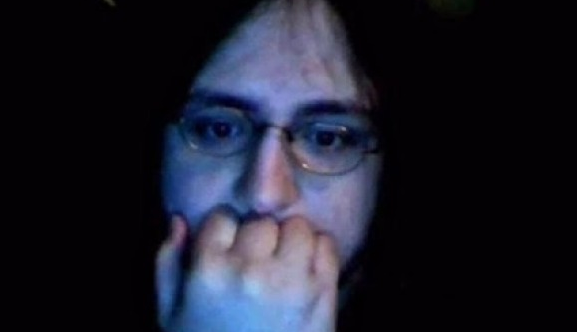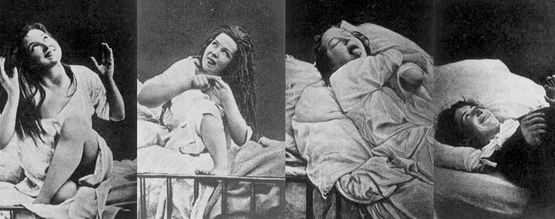On Wednesday Zoë Quinn wrote a heartbreaking post about why she is giving up the fight against her ex boyfriend who has defamed her, harassed her, and made her the most hated person on the Internet. The last one isn’t true of course, but one could think it is by the sheer volume of hate, threats, and abuse thrown at her. She is dropping the case for many reasons: her ongoing struggle with PTSD from GamerGate, the reckless and unethical way her ex’s lawyers were defending the case [through more attacks], the complete ineffectiveness of restraining orders to deal with continued online harassment, people she loved being hurt, his “she was asking for it” defense was being taken seriously, and her not being seen as a “good victim” in the eyes of the court. Most off all, however, what I got from her post is that she is giving up the fight because of the judicial system’s (from the police officers to the judges) ignorance [willful?] when it comes to online harassment and the seriousness of it.
Is it a surprise that online abuse and harassment are not taken seriously by police officers, attorneys, and judges? Given that women are the overwhelming victims of online harassment, I’d say the answer is an overwhelming no. Crimes against women are never treated with the same reverence as crimes against men. Take the popular wallet v. rape example. If your wallet is stolen, people don’t say, “oh your wallet was stolen; what type of pants were you wearing? Were you drinking that night? Had you let that guy take your wallet before?” Of course women can have their wallet stolen too, but it’s not a crime that predominantly affects women. Harassment online predominantly effects women, so it comes as no surprise that police officers and agents of the court system are not being forced to become educated about it. (That reminds me of a story a friend told me about when reporting her harassment to the police: “Well ma’am, if they were messages to your phone or something we could do something, but they’re just email.” “Email does come to my phone.” “Wow! Technology is amazing. Ok, well if it came to your mailbox we could do something.”)
Not only are people less willing to take the crime seriously because it’s perpetrated against women, but they won’t even take the time to learn. Zoë repeatedly talks about the police officers who told her to just stay offline [just stay sober, just don’t walk down that alley, just go to church instead of to a party, ok just stay home entirely, oh it’s a family member? Just don’t be such a slut then]. Stories by women across the internet all report similar responses when reporting online harassment and threats to the police.
Unless the style or wording or medium of the threat is something that fits into a police officer’s already preconceived idea of what a viable threat is, women are screwed. Police officers understood the threat of shooting up the Utah school where Sarkeesian was set to speak. They don’t understand the items covered in semen sent to Quinn or online threats in general. Quinn writes, “Ironically, getting a restraining order against Creep Throat was the least effective thing I could do in terms of getting him out of my life for good, and for protecting myself.” That’s because the judicial system barely recognizes online harassment as anything, because in the police officers’ eyes, you can simply avoid it by going offline. Further, as Quinn points out, her ex easily got a mob to harass her instead [which should also be illegal, but hey, it’s just the internet]. I wonder how many times women had been told to not check their mailboxes. I wonder how many times they have been told to just stay home. And I’m not picking on police officers; they’re just the face of an entire system that is completely unequipped to deal with what’s happening. (Unequipped on purpose because it’s happening to women?)
All I know is this: in a system, a world, where “she was asking for it” is a viable defense, we are all in trouble. People don’t deserve abuse. No matter what your relationship status or what you think that person might have done, they did not “earn” the wrath, threats, and harassment. Creep Throat [Quinn’s name for her ex] seems to feel that Quinn owes him something. Why does she owe him something? She didn’t want to be in a relationship with him. She didn’t conform to his desires. In his mind, this makes it “fair” for him to have done this to her. It doesn’t shock me that there are mentally ill people who believe this out there. What shocks me is that he got so many people to follow him. What shocks me that the courts don’t know how to deal with this. What shocks me is that everyone in the legal system seems unwilling to deal with this type of situation.
The judicial systems may not want to deal with online harassment, but they’re going to have to. They may want to sidestep and muddle and avoid as long as possible, because yes, it’s fucking hard to prove the identity of the online persona harassing you; yes, it’s even harder to parse what’s a “real” threat from what’s just trolling; yes, the waters get muddy when talking about abuse coming from oversees or through proxies. But it’s not impossible. If it has been happening to men rather than women, I bet we would already have things in place to prevent, track, and prosecute.
I don’t blame Quinn for dropping the case. The entire system is set up for her to fail anyway. What would the courts do if Quinn won and suddenly they had to hear all the cases of online harassment and abuse? They have no interest in that. Not that Quinn needs my, or anyone else’s, permission, but I support her decision. She has been through enough hell for 10 lifetimes. Put up your hands, Quinn, and start putting the pieces back together. We will continue fighting the fight. We might not have taken back the night yet, but hopefully we can start taking back the Internet.




